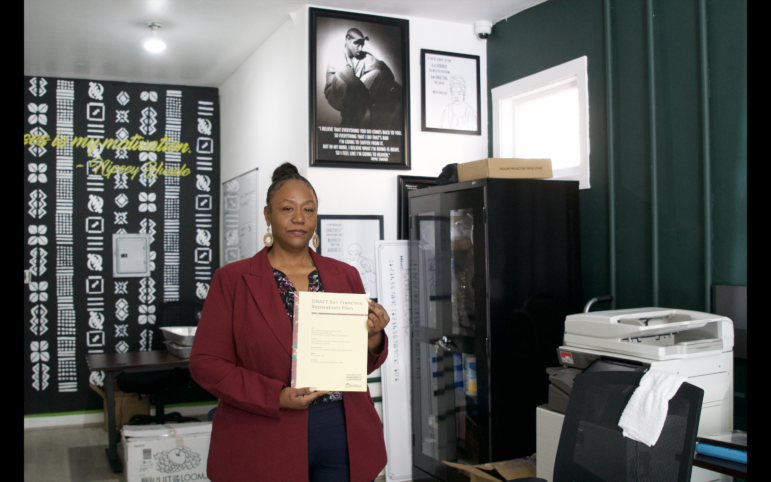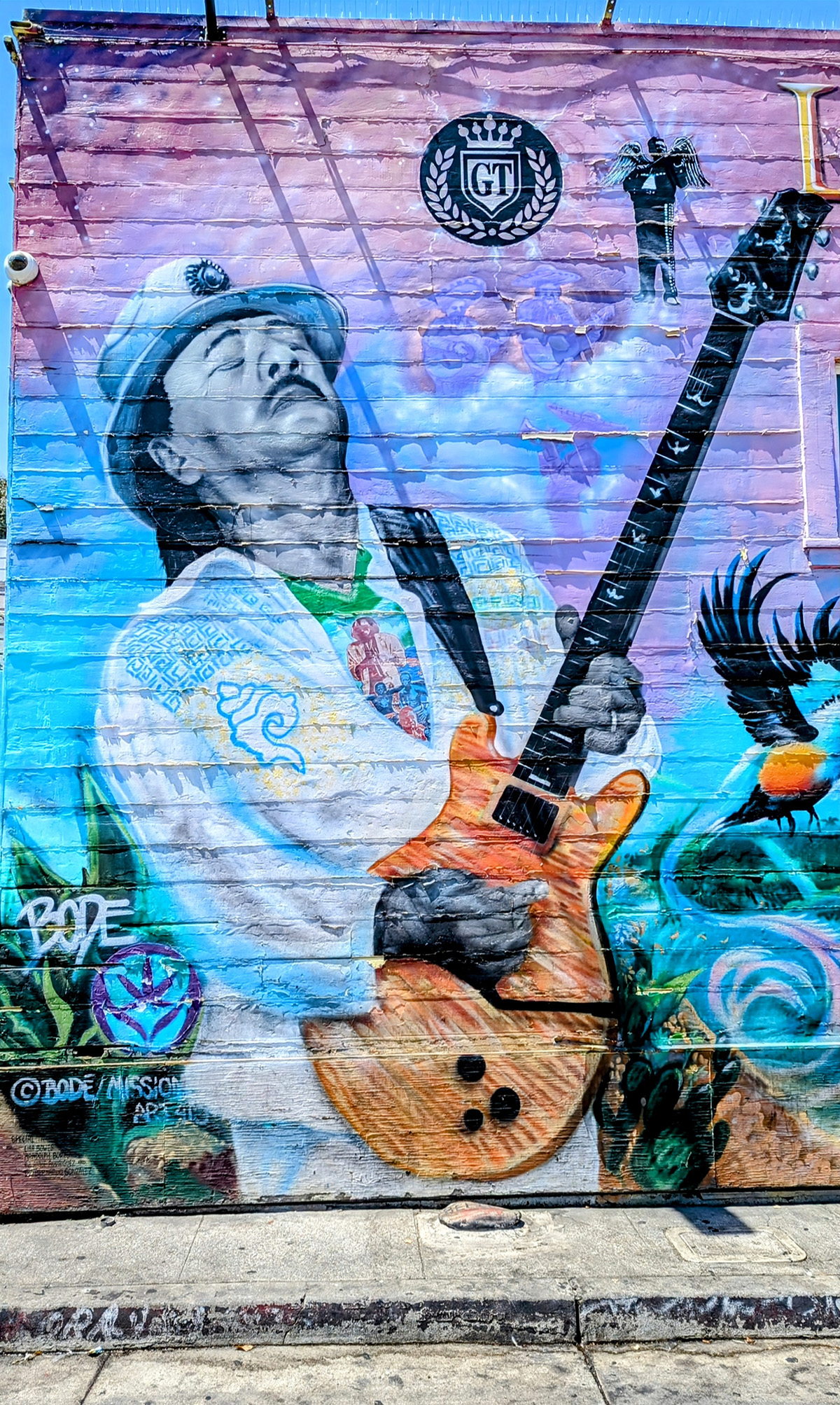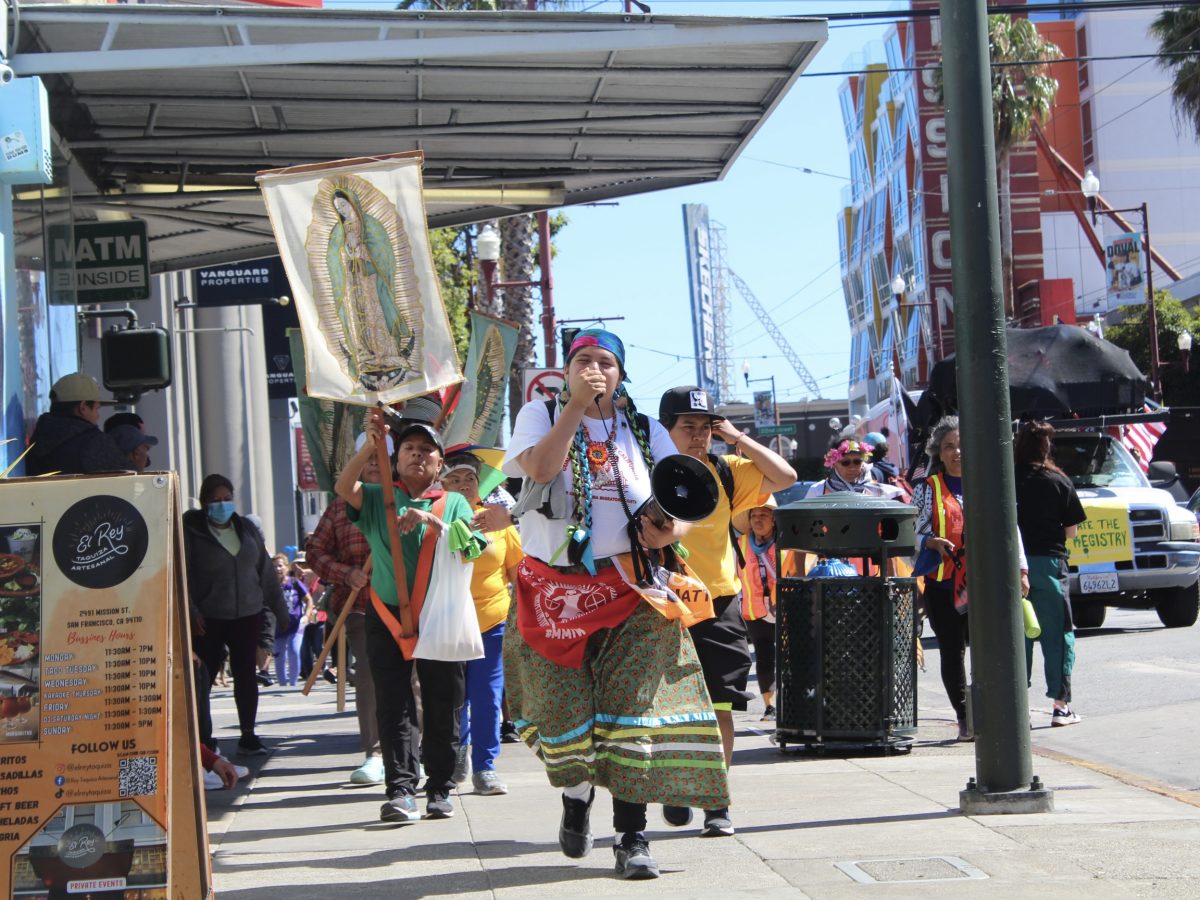[ad_1]
Just over a week after the U.S. Supreme Court gutted affirmative action in college admissions, San Francisco took a major step in the other direction by advancing a plan to repair historical harms by the government against Black people.
After dozens of meetings over two years, the San Francisco African American Reparations Advisory Committee released its final recommendations to the Board of Supervisors and Mayor London Breed on Friday.
Beyond policy ideas in a December 2022 draft report such as $5 million cash payments to qualifying Black San Franciscans, the committee added dozens of new recommendations such as the creation of a “Black card” program offering free access to city services and discounts at businesses. The proposal would also further shake up politics, adding two Board of Supervisors appointees to the Police Commission, including someone who has been incarcerated.
The final plan altered qualifications for reparations programs. For example, now participants have only to prove one “harm” to be eligible.
But the “what” of the recommendations did not change as much as the “why.” The authors added much detail to their analysis, expanding discussion of injustices committed by government and private actors against Black San Franciscans, growing the report from a 60-page draft to almost 400 pages.
It takes pains to point out a precedent for local reparations: compensation by federal and San Francisco governments for Japanese Americans imprisoned during World War II. The movement for Black reparations gained momentum in the wake of the murder of George Floyd, an unarmed Black man, by Minneapolis police in May 2020, and was accelerated by racial disparities in the effects of the coronavirus pandemic. In San Francisco, reparations advocates, such as the local NAACP branch, had long denounced discrimination in housing, economic opportunity, disparities in health outcomes for Black residents. They also pointed to disparities in education outcomes — a greater challenge now than before the Supreme Court signaled a further curtailment of affirmative action nationwide.
“The court’s ruling,” observed James Lance Taylor, a professor of political science at the University of San Francisco who sits on the Reparations Advisory Committee, “said ‘No, we want to go back to old America.’ And reparations is saying, ‘We don’t want to be broken anymore as a people, we want to go into the rest of the 21st century somewhat whole.”
The committee’s draft plan drew national attention by advocating for the $5 million payments, as well as other policies such as selling public housing units for $1 each, establishing a historically Black college or university campus in the city, building neighborhood health clinics in African American neighborhoods and supporting Black cultural institutions. These provisions remain in the final version.
The Board of Supervisors plans to hold a public meeting on Sept. 19 to discuss the final plan’s ideas, including presentations from several reparations committee members.
Though critics question the need for reparations in a city where slavery was not formally adopted, the report notes: “The tenets of segregation, white supremacy, separatism, and the systematic repression and exclusion of Black people from the city’s economy were codified through legal and extralegal actions, social codes, and judicial enforcement. The legacies of these actions bear true to this day.”
The local report comes on the heels of a parallel effort in Sacramento. The California State Reparations Task Force on June 29 submitted its findings for consideration by the Legislature. Recommendations include a formal apology for “gross” human rights violations against enslaved African people and their descendants, cash payments, restoring voting rights to formerly incarcerated people, tax relief for Black families in neighborhoods where the government participated in discriminatory lending, a K-12 Black curriculum, and eliminating toxic waste near federally assisted housing and other areas with high concentrations of African Americans.
Committing Resources
On June 29, several San Francisco supervisors reached an agreement with Breed to include $4 million in the city’s two-year budget for an Office of Reparations. That sum was a far cry from the $50 million that Supervisor Shamann Walton, who proposed the reparations committee, advocated in March.
Walton told the San Francisco Examiner he was “definitely disappointed we didn’t get $50 million, definitely disappointed we didn’t get $10 million, but most certainly positive and optimistic that we’re moving forward and there will be a positive outcome.”
Taylor said $4 million was “not a small amount of money” and expressed guarded optimism that reparations would move forward with an office. “I’m encouraged because of recent developments, but we’re still up against the tide and have a long way to go and a lot of people to, you know, to meet and persuade,” he said.
A June 5 San Francisco Budget and Legislative Analyst report estimated that the office would require $1.6 million over two years for administration. The office could use remaining funds to search for eligible applicants, develop policy proposals, create pilot programs and set investment criteria. But more funds would be needed for bigger goals, such as cash payments.
Though the funds have been secured, Breed “has not agreed” to allow her administration to spend the money, mayoral spokesperson Jeff Cretan told the San Francisco Chronicle.
In an email to the Public Press, the mayor’s office wrote that Breed believes reparations, including cash payments, is an issue best handled on the national level. However, “we are always interested in reforming local policies to address systemic issues that impact our communities, including the African-American community,” her office wrote. “We will be reviewing the report to understand what is included, and will work to implement policies and programs that deliver on that commitment.”
The full board must vote twice to finalize the budget before Breed signs it by August. The board unanimously endorsed the draft reparations plan in March in a nonbinding vote, but its recommendations can still be amended or set aside.
Question of Eligibility
To qualify for reparations, applicants must meet criteria the board recently amended in part to align with language in the California State Reparations Task Force’s report. Participants must be either African American descendants of an enslaved person, descendants of a free Black person prior to the 20th century, or have identified as Black or African American on public documents for 10 years. They must also be over 18 and have been born in or migrated to San Francisco before 2006, with 10 years of residency.
The plan requires participants to have suffered harm, and several examples were added to the list and others clarified. Additions include documented injury by law enforcement, lending discrimination and substandard living conditions in public or subsidized housing. Instead of proving two harms as in the draft plan, participants now need prove only one.
Additional Policies and Findings
Four subcommittees of the Reparations Advisory Committee added dozens of new recommendations in the past six months, as well as historical discussion and contemporary study findings.
Policy additions include a Black legal defense fund to help city workers facing discrimination, a genealogy testing fund and housing opportunities for Black seniors and LGBTQ+ people. Another suggestion: using money from cannabis taxes and restitution from drug-related class action lawsuits to fund Black businesses, education and homeownership.
The final report cites findings by several academic and governmental groups. A Law and Policy Lab report from Stanford Law School details disinvestment in San Francisco’s African American community between 1970 and 2022. An independent reviewer from Stanford University documented barriers in the city’s recruiting, hiring and advancement of Black workers.
Also included are a community-led oral history guide from students at Stanford Law School, findings from interviews and focus groups by students at the University of San Francisco and a socio-spatial analysis of Black San Francisco and a survey analysis by Kerby Lynch, senior program manager for Ceres Policy Research, a policy-oriented research group focused on alternatives to the current justice system.
The report acknowledges that the movement will need backing from the community and elected officials. State residents “express significant support for reparations measures for eligible Black Californians,” though it varies by characteristics like race and age, according to a study from the Ralph J. Bunche Center for African American Studies at the University of California, Los Angeles. The survey shows that 87% Black Californians support cash payments, while only 47% of white people and 46% of Asian Americans do. Overall, cash payments attracted the least support — 63% — of any of the provisions surveyed.
But advocates note that many ideas once considered radical have come to fruition. “Momentum is in our favor,” Taylor said. “I’m most proud that we have inspired people to believe that this is theirs, that they deserve it. It is not welfare, it is not affirmative action, it is not Black begging. It is the result of actual harm that the state did to them as a population.”






